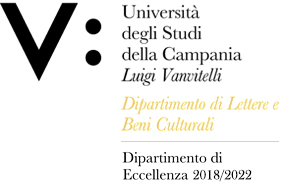Astrid DOELLFELDER
Insegnamento di LINGUA TEDESCA
Corso di laurea in LETTERE
SSD: L-LIN/14
CFU: 6,00
ORE PER UNITÀ DIDATTICA: 30,00
Periodo di Erogazione: Secondo Semestre
Italiano
| Lingua di insegnamento | Il corso è tenuto in lingua italiana e in lingua tedesca |
| Contenuti | Questo corso si propone, per l’importanza che svolge la lingua tedesca nelle discipline umanistiche, di preparare gli studenti alla lettura, comprensione e traduzione di testi in lingua tedesca. Contemporaneamente si vuole sfatare il mito che il tedesco sia una lingua difficile facendo presente che lo studente possiede già nella sua lingua le capacità e tutti gli strumenti necessari per la comprensione di un testo semplice in lingua straniera. |
| Testi di riferimento | M. Böhmer, Il nuovo tedesco scientifico, Bulzoni, 2015. |
| Obiettivi formativi | L’obiettivo del corso consiste nell’avviamento alla lettura di testi in lingua tedesca. Durante il corso vengono fornite le basi che consentono allo studente di proseguire autonomamente nello studio della lingua tedesca e di approfondire gli argomenti trattati. |
| Prerequisiti | Per frequentare il corso non è necessaria la conoscenza della lingua tedesca. |
| Metodologie didattiche | La frequenza delle lezioni costituisce un sussidio didattico dotato di rilevanza centrale, oltre che un preciso obbligo. Non si tratta della classica lezione frontale. Durante il corso gli studenti lavorano prevalentemente in piccoli gruppi sostenuti dal docente. Lo studente deve progressivamente rendersi autonomo dal docente, acquisendo la capacità di affinare ed approfondire le proprie conoscenze attraverso un percorso di formazione. |
| Metodi di valutazione | Modalità d’esame: orale |
| Altre informazioni | nessuna |
| Programma del corso | Il corso prevede: |
English
| Teaching language | The course will be held in Italian and German |
| Contents | Due to the importance of the German language in the humanities, this course aims to prepare students for reading, understanding and translating German texts. At the same time we want to dispel the myth that German is a difficult language by pointing out that the student already possesses in his own language the skills and all the tools necessary for understanding a simple text in a foreign language. |
| Textbook and course materials | M. Böhmer, Il nuovo tedesco scientifico, Bulzoni, 2015. |
| Course objectives | The aim of the course is to initiate the reading of German texts. During the course the basics are provided that allow the student to continue independently in the study of the German language and to deepen the topics covered. |
| Prerequisites | Knowledge of the German language is not required to attend the course. |
| Teaching methods | The attendance of the lessons constitutes a didactic aid with central importance, as well as a specific obligation. This is not the classic frontal lesson. During the course, students work mainly in small groups supported by the teacher. The student must progressively become independent from the teacher, acquiring the ability to refine and deepen their knowledge through a training course. |
| Evaluation methods | Method of examination: oral |
| Other information | none |
| Course Syllabus | The course includes: |








